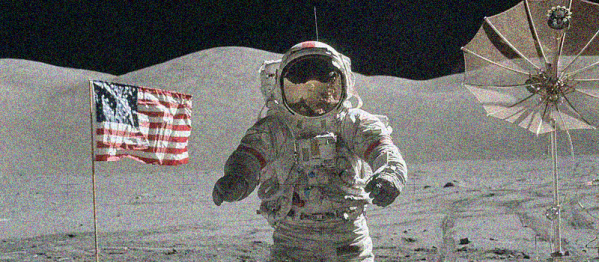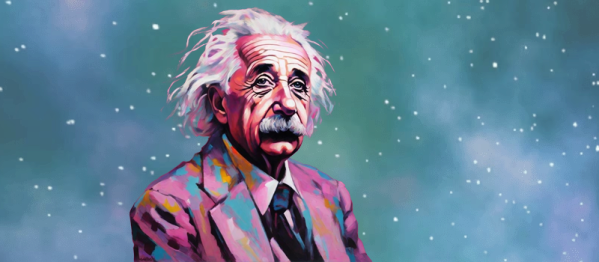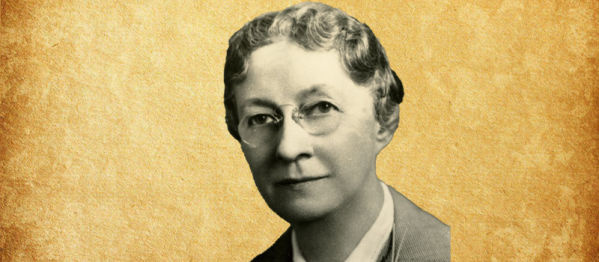Johannes Kepler, a brilliant astronomer of the Renaissance era, unraveled the intricate dance of celestial bodies with his groundbreaking laws of planetary motion. Among these, his third law stands as a cornerstone in understanding the harmony of the cosmos. Let's delve into Kepler's observations, his initial errors, the eventual corrections, and the ultimate confirmation of... Continue Reading →
Blood Moon
The lunar eclipse of March 1, 1504, stands out not only as an astronomical event but also as a pivotal moment in the history of European exploration in the New World. This eclipse was visible across the Americas, including the island of Jamaica, where the famous explorer Christopher Columbus and his crew were stranded. The... Continue Reading →
29
The existence of February 29th, an anomaly in the Gregorian calendar that occurs every four years, is a fascinating aspect of timekeeping that has historical and astronomical significance. This extra day, known as a leap day, is added to the calendar to ensure that it remains aligned with the Earth's revolutions around the Sun. The... Continue Reading →
And Yet It Does
On February 13, 1633, Galileo Galilei, the venerable Italian astronomer, physicist, and engineer, arrived in Rome to stand trial before the Roman Inquisition. This event marked a pivotal moment in the history of science, the Roman Catholic Church, and the intersection of faith and empirical evidence. The trial of Galileo remains one of the most... Continue Reading →
Truth Is the Daughter of Time
In the vast cosmic arena, the tale of Johannes Kepler emerges as a beacon of intellectual pursuit, blending the mysticism of the heavens with the rigorous proofs of mathematics. Born in a tumultuous era on December 27, 1571, in Weil der Stadt, Germany, Kepler's life was a tapestry woven with the threads of personal hardship... Continue Reading →
Tycho Brahe
Tycho Brahe, born Tyge Ottesen Brahe on December 14, 1546, in Scania, then part of Denmark, was a renowned Danish nobleman, astronomer, and writer known for his accurate and comprehensive astronomical observations. His early life was marked by privilege and education. Born to a prominent Danish noble family, he was raised by his uncle, Jørgen... Continue Reading →
The Last Step
December 13, 1971, marked a significant moment in the annals of space exploration. It was on this day that the crew of Apollo 17, NASA's last Apollo moon mission, embarked on their final moonwalk, an event etched deeply in the chronicles of space history. Before delving into the details of this final excursion, it is... Continue Reading →
Atoms for Peace
President Dwight D. Eisenhower's "Atoms for Peace" speech, delivered on December 8, 1953, at the United Nations General Assembly, marked a pivotal moment in the history of nuclear energy and international politics. The speech, coming at the height of the Cold War, represented a significant shift in nuclear policy, proposing the use of atomic energy... Continue Reading →
E=mc2
Albert Einstein's paper published on November 21, 1905, in the journal Annalen der Physik, marked a pivotal moment in the field of physics. This groundbreaking work introduced the concept that would later be encapsulated in the famous equation E=mc², the mass-energy equivalence formula. This paper, along with his other publications in the same year, contributed... Continue Reading →
SN 1572
Supernovae, the explosive deaths of massive stars, have captivated astronomers and stargazers alike for centuries. One such event, Supernova SN 1572, left an indelible mark on the annals of astronomy. In this article, we will delve into the historical observations of SN 1572 by the eminent Tycho Brahe, the role played by Johannes Kepler, and... Continue Reading →
It’s The End of the World And We Know It… Or Not…
The 18th century witnessed a remarkable interplay between science, religion, and intellectual discourse. At the heart of this interplay stood figures like William Whiston, a polymath whose work and beliefs generated both admiration and controversy. This article delves into the life and legacy of Whiston, highlighting the manifold aspects of his character and career. William... Continue Reading →
Mary Engle Pennington
Throughout women's history, there have been pioneers who have broken boundaries, not only in the realm of gender equality but also in their respective fields of expertise. One such remarkable woman was Mary Engle Pennington, an American bacteriologist and refrigeration engineer, whose groundbreaking work greatly impacted the food storage industry and public health. Mary Engle... Continue Reading →
Special Relativity
I remember vividly the day that I finally understood the implications of Einstein's Theory of relativity. I had been familiar with the idea but WHAT it actually meant was beyond me. Beyond the twist ending of The Planet of the Apes, it just didn't seem to have much practical application. All through seminary, the discussion... Continue Reading →
The Father of the Black Hole
You might think of Robert Oppenheimer as the Father of the Atomic Bomb. But did you know that he is also one of the Fathers of the Black Hole? On the same day that Nazi Germany launched World War II in Europe, September 1, 1939, Oppenheimer and his student, Hartland Snyder, published a paper which... Continue Reading →
Eppur Si Muove
August 25, 1609 Salutations to those who read these words! Today was a day of profound significance and joy for me. Upon the terraces of the ancient and revered city of Venice, I had the privilege of presenting a most wondrous invention of mine to the officials of the Republic. I named it the 'telescope.'... Continue Reading →
When Benjamin Franklin Shocked Himself While Attempting to Electrocute a Turkey | History | Smithsonian Magazine
The statesman was embarrassed by the mishap—no doubt a murder most fowl Source: When Benjamin Franklin Shocked Himself While Attempting to Electrocute a Turkey | History | Smithsonian Magazine Most everyone knows that Benjamin Franklin was not only a famous statesman but also a great inventor and scientist, particularly in the field of electricity. He actually introduced much... Continue Reading →
Marie Curie | Biography & Facts | Britannica
Marie Curie, Polish-born French physicist, famous for her work on radioactivity. She was the first woman to win a Nobel Prize, and she is the only woman to win the award in two different fields (Physics, 1903; Chemistry, 1911). Learn more about Marie Curie in this article. Source: Marie Curie | Biography & Facts |... Continue Reading →
Galileo | Biography, Discoveries, Inventions, & Facts | Britannica
Galileo, Italian natural philosopher, astronomer, and mathematician who made fundamental contributions to the sciences of motion, astronomy, strength of materials, and to the scientific method. His discoveries with the telescope revolutionized astronomy, and his observations bolstered Copernican theory. Source: Galileo | Biography, Discoveries, Inventions, & Facts | Britannica
This Day in History: Apollo 1 ends in tragedy
On this day in 1967, the first manned Apollo mission ends in heartbreak. Apollo 1’s crew had been at Kennedy Space Center, preparing for their upcoming launch. Unfortunately, they never made it into space. Instead, all three astronauts were tragically killed during what should have been a simple launch rehearsal. Source: This Day in History:... Continue Reading →
Michael Servetus (1511-53)
Source: Michael Servetus (1511-53) Michael Servetus was a theologian who also studied medicine in Lyons and Paris. In 1553 he anonymously published a 700-page book, Christianismi restitution (The Restoration of Christianity). His religious views were considered extreme, angering both Catholics and Protestants. His description of the pulmonary transit of the blood through the lungs was part of... Continue Reading →


















